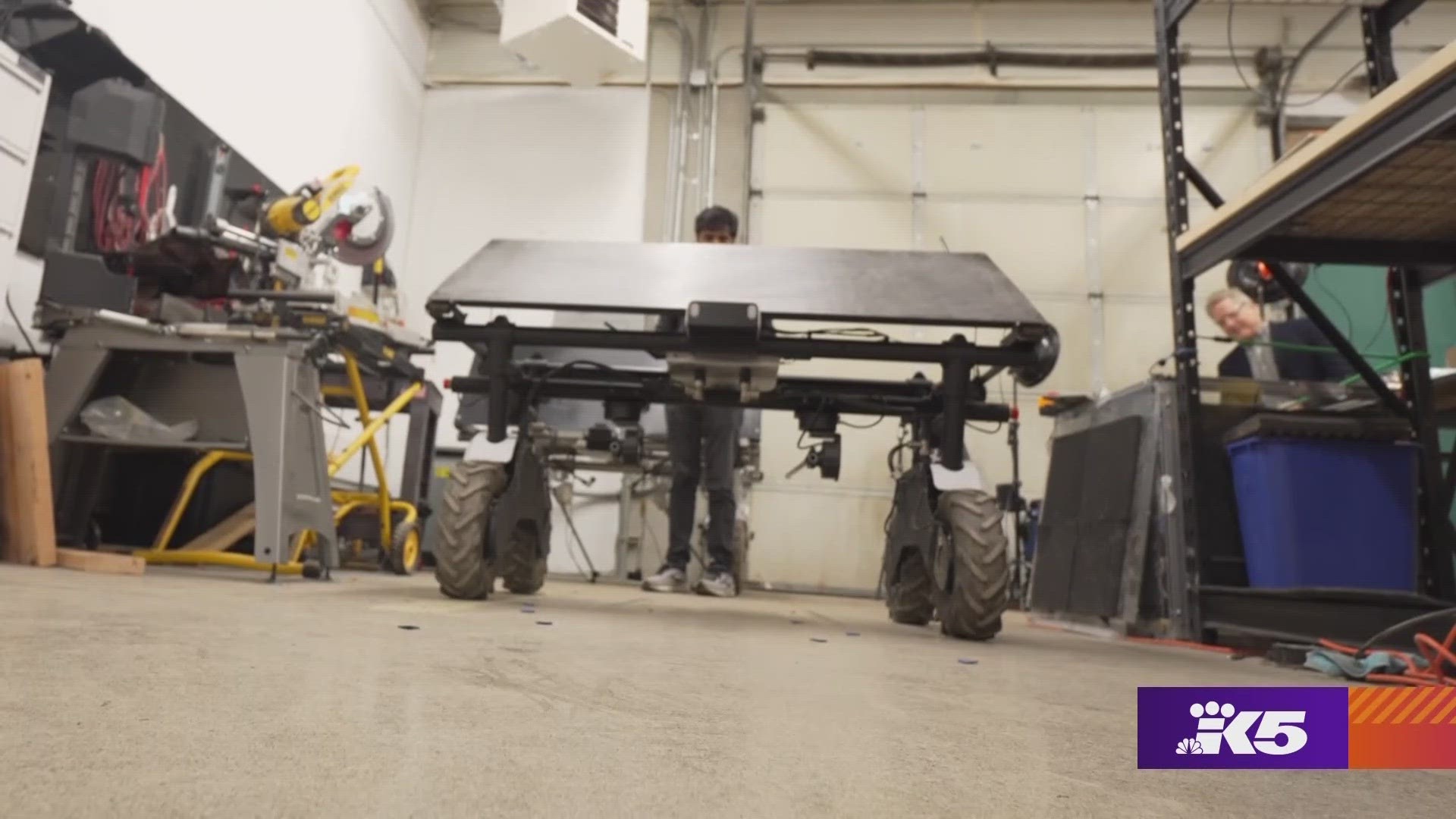KIRKLAND, Wash. — A refrigerator-sized robot is on a mission to save the world.
"We feel like we're really at the cutting edge of being able to pull this off," said Rich Wurden, cofounder of Kirkland-based Aigen.
The robot is called Element, and it could completely change the future of farming.
"It is also a very personal mission for both of us," said cofounder Kenny Lee.
After successful stints in IT and clean tech, Lee and Wurden are now making it their life's work to get chemicals out of agriculture.
"I'm actually Type 1 diabetic, which has been linked to the use of pesticides," Wurden said.
Lee is a cancer survivor.
"We see the rise in cancer rates, all over the world, globally, and there's a trending line that correlates with the overuse of chemicals in our food." Lee said.
Wurden added, "Now, the weeds are actually immune to those chemicals, so they apply even more pesticides to deal with it."
Eliminating the need for chemical herbicides without burning fossil fuel, their solar-powered invention uses a camera and artificial intelligence to find and remove unwanted weeds.
"It's an advanced, hyper-efficient satellite with wheels. That's what we're building," Lee said.
The vehicle is remarkably light.
"One person who's very strong can pick it up," Wurden said.
It's surprisingly agile.
"How do you get a smaller robot to actually overcome obstacles at a farm? We had to develop suspension in the chassis to actually allow it to twist so it can always be engaging the ground," Wurden said. "We switched to four-wheel drive versus two-wheel drive. Just all kinds of improvements over time and learnings."
Element targets weeds early in their life cycle.
"We'll strike the weeds with mechanical arms that pull them out of the ground as we drive by," Wurden said.
The solar panel above the chassis performs double duty in gusty weather.
"A sail for the wind as well," Wurden said.
Each robot can farm close to 30 acres a week, largely unsupervised.
"We actually can leave the robots out in the sun just running continuously all day now with nobody even out at the field," said Wurden. "It's just fully autonomous."
The Aigen staff is growing like, well, a weed, and attracting millions of investment dollars. The company will soon be rolling out robots on farms across the Midwest.
"That's where we see some of the toughest herbicide-resistance weed problems," Lee said.
Rich Wurden and Kenny Lee are planting seeds of change in the world's largest industry and growing a greener planet.
"Can we grow healthy food without synthetic herbicides is the trillion-dollar question," Lee said. "And we believe that we can do it."
KING 5's Evening celebrates the Northwest. Contact us: Facebook, Twitter, Instagram, Email.

